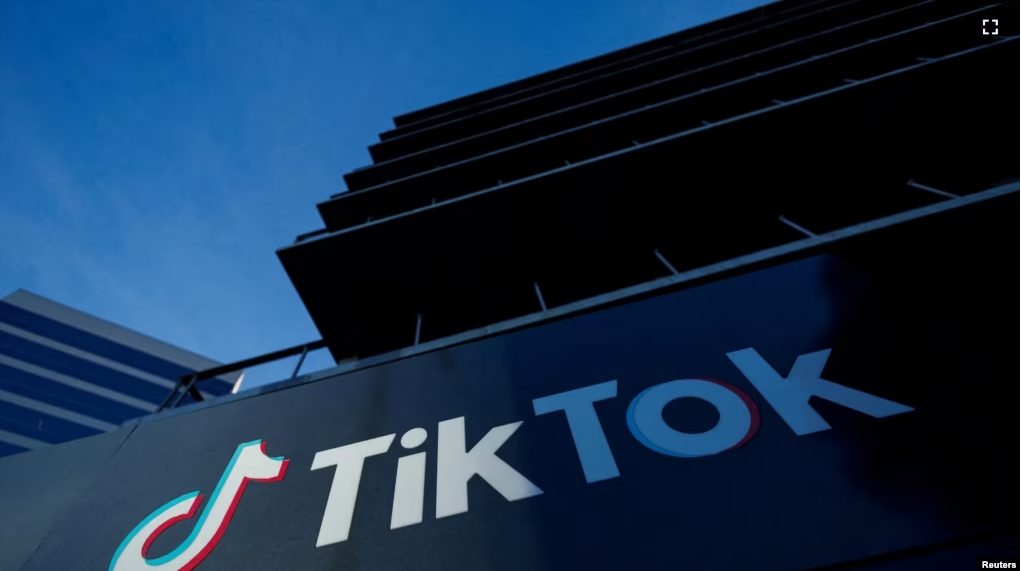American President Joe Biden signed a law Wednesday that would ban the video sharing service TikTok if its Chinese owner, ByteDance, fails to sell its interest in the company.
The U.S. Senate voted 79 in favor and 18 opposed, also on Wednesdaty. The measure is attached to a spending bill that would provide Ukraine, Israel, and Taiwan with $95 billion, mostly in military aid. The House of Representatives passed the legislation on Saturday.
Lawmakers said they supported the measure because China could collect the online data of Americans through the TikTok app.
Speaking of TikTok, Florida Senator Marco Rubio said, “For years we’ve allowed the Chinese Communist Party to control one of the most popular apps in America.” TikTok remains popular among teenagers in the United States. The U.S. government ordered the app removed from all its devices early last year.
Reporters asked the Chinese foreign ministry about the Senate’s vote. A spokesperson noted an earlier statement, which said, “though the U.S. has never found any evidence of TikTok posing a threat to the U.S.’s national security, it has never stopped going after TikTok.”
The company is likely to dispute the law in court. Users are also expected to take action as they did in Montana. Last November, a federal judge blocked a state ban on TikTok. The judge said the ban likely violated the First Amendment to the Constitution which protects freedom of speech.
The American Civil Liberties Union (ACLU) commented on the possible U.S. ban and the requirement that ByteDance sell its interest. The ACLU said it would “set an alarming global precedent for excessive government control over social media platforms.”
The group added that the move invites foreign countries to make similar laws against U.S. businesses.
TikTok said it does not share U.S. user information with the Chinese government. It has told its employees in the past that it would go to court to block such legislation. Company employees said in an email, “This is the beginning, not the end of this long process.”
In 2020, then-President Donald Trump tried to block TikTok and Chinese-owned WeChat, a part of Tencent, but U.S. Courts blocked that move.
Under the new law, Apple and Google could not legally offer TikTok in the app stores. They also could not provide web hosting services to TikTok’s website or applications under the control of ByteDance.
The law also gives the Biden administration new power to force the sale of other foreign-owned apps that it considers security threats.
Once it is signed by the president, the law gives ByteDance 270 days to sell its interest in TikTok’s U.S. operations. A possible three-month extension is provided for.
Senator Ed Markey said it would be difficult or impossible for ByteDance to meet the terms of the law by 2025. He said such a move would be costly and complex. Markey said the law was simply a ban on TikTok. He added, “Censorship is not who we are as a people. We should not downplay or deny this trade-off.”
Senator Ron Wyden of Oregon said he was concerned the law gives the government power “that could be abused by a future administration to violate Americans’ First Amendment rights.”
TikTok is not a publicly traded company, meaning its shares are not available on a public stock exchange.
I’m Mario Ritter, Jr.
David Shepardson reported this story for Reuters. Mario Ritter, Jr. adapted it for VOA Learning English.
______________________________________
Words in This Story
allow –v. to permit; to let happen
pose –v. to present
precedent –n. an action that is likely to be copied in the future by others
excessive –adj. too much
platform –n. a service that spreads information created by others
web host –v. to provide servers for a website or online activity
censorship –n. the institution, system, or act of examining materials in order to suppress or remove anything considered objectionable
